The Top 13 Rock and Metal Replacement Singers
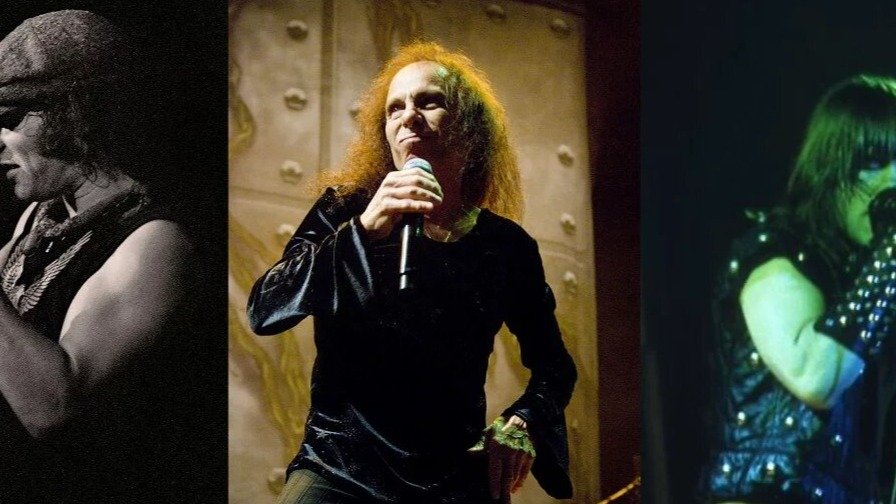
Whenever a singer leaves a band, it’s a huge shock to the existing lineup. The sound is bound to change and fans are bound to have strong reactions. It’s very difficult to convince everybody to get on board with a new vocalist. The best rock and metal replacement singers are a reflection not only of the singer but also of the cohesiveness and leadership of the band at that time.
In that regard, the best rock and metal replacement singers are the ones who managed to navigate that storm yet still make great music. All of these vocalists managed to deliver great albums and vocals, often stabilizing their bands as well. Some of them even became their band’s most iconic singers in the process.
So, this is a list of the top 13 best rock and metal replacement singers of all time. This also focuses on their stories with their bands, their achievements, and a whole lot more.
Top 13 best rock and metal replacement singers of all time
This list of the best rock and metal replacement singers of all time is entirely subjective. There are probably some singers missing so feel free to mention them in the comments. We love to hear from you. However, the entire focus of this list is to celebrate the careers and achievements of these amazing musicians.
Who are the top 13 best rock and metal replacement singers of all time?
- Bruce Dickinson
- James LaBrie
- Ian Gillan
- Michael Kiske
- Andi Deris
- David Gilmour
- Brian Johnson
- Sammy Hagar
- Tim “Ripper” Owens
- Ronnie James Dio
- Floor Jansen
- John Corabi
- William DuVall
Bruce Dickinson
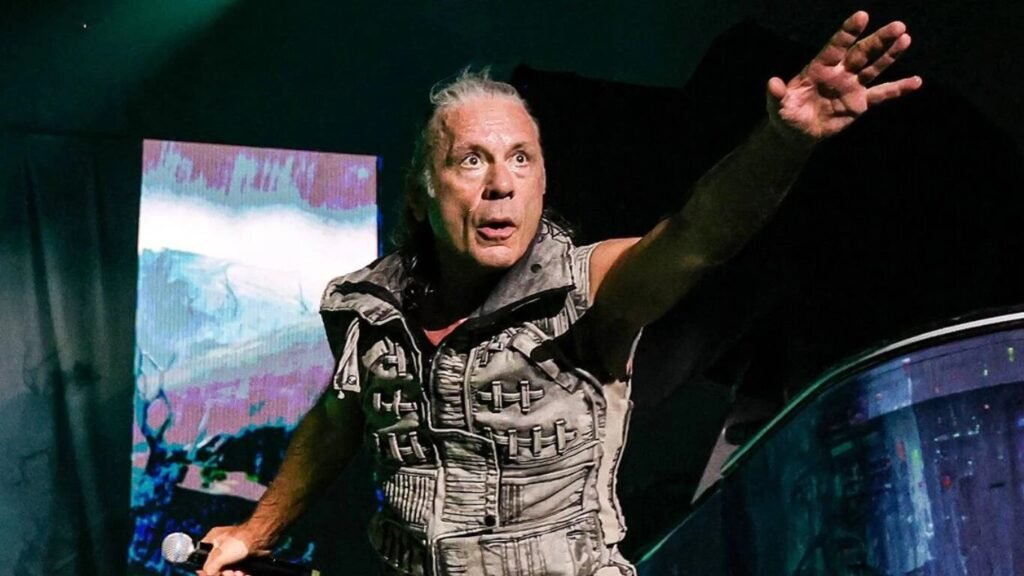
Nowadays, it is difficult to imagine Iron Maiden with another frontman other than Bruce Dickinson. However, in the 70s, when the band was starting, there were several changes in the singer’s position. Singer Paul Di’Anno was the one who stayed the longest in the early days.
That was until 1981, though, when Dickinson appeared to replace Di’Anno. Except for a period in the ’90s, Dickinson has been the voice of the band ever since. Dickinson‘s voice and his energetic way of performing on stage is an important part of what defines Iron Maiden.
Dickinson has also been the band’s singer for most of its iconic albums. He has also been a major driving force as a songwriter. When it comes to influence and impact, he is probably the greatest replacement singer in rock and metal history.
James LaBrie
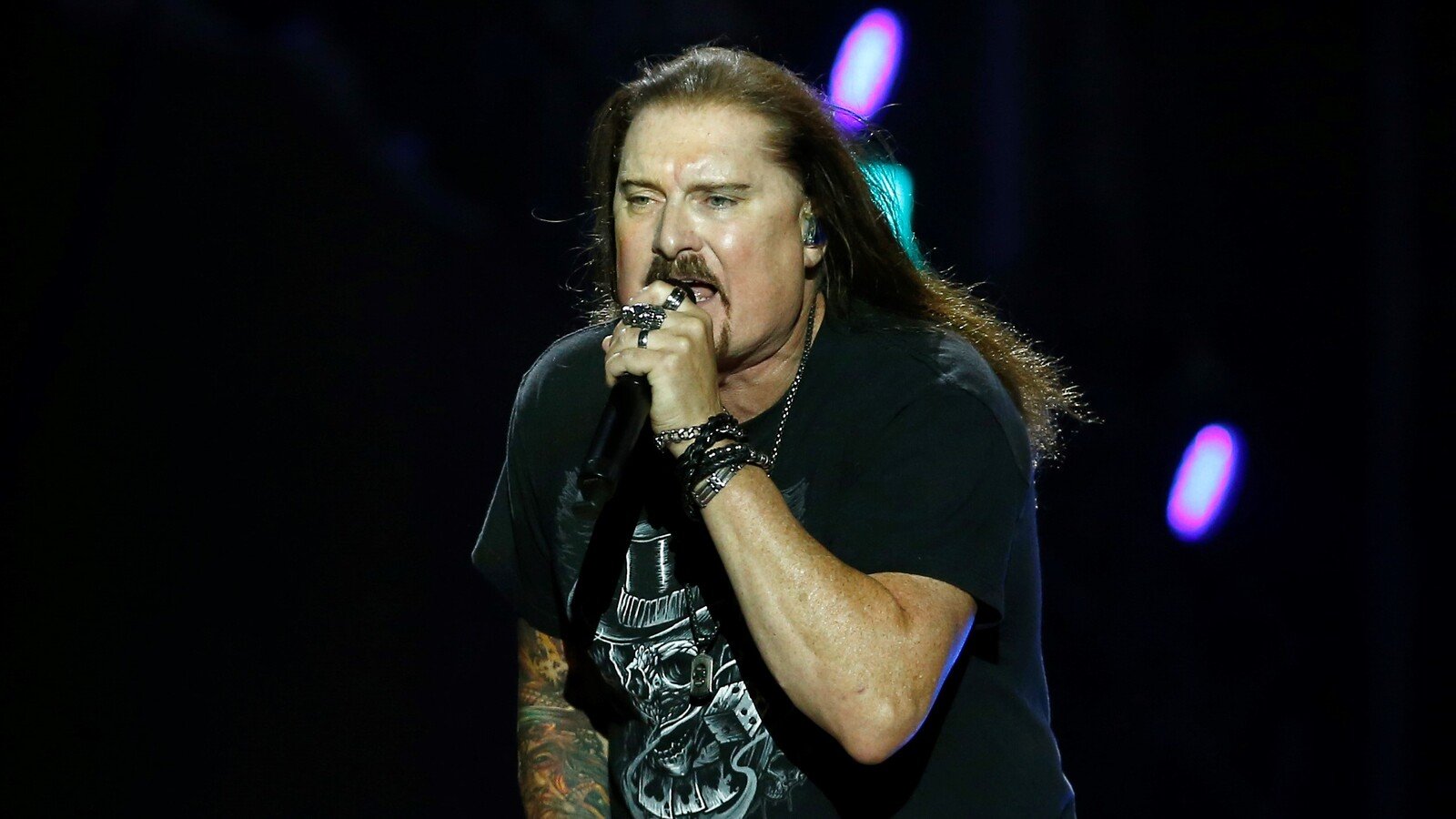
The position of singer in Dream Theater is not an easy role. This is one of the most technical bands in the world, so the singer must know how to fit in with everything that happens on the instrumental side of things. It also requires having a major lack of ego because the singer rarely is the main focus of the band.
In 1991, after the departure of Charlie Dominici due to differences regarding the band’s future, James LaBrie was chosen from a huge group of candidates to be the singer of Dream Theater. LaBrie suited the style they wanted for the band and adapted to the different facets of Dream Theater, and remains the band’s vocalist to this day. That is why the Canadian is one of the best rock and metal replacement singers.
This is not to say that LaBrie hasn’t received criticism over the years. On the contrary. He has proven his worth time and time again with the band. Arguably his best performance with the band was the 1994 album “Awake“.
Ian Gillan
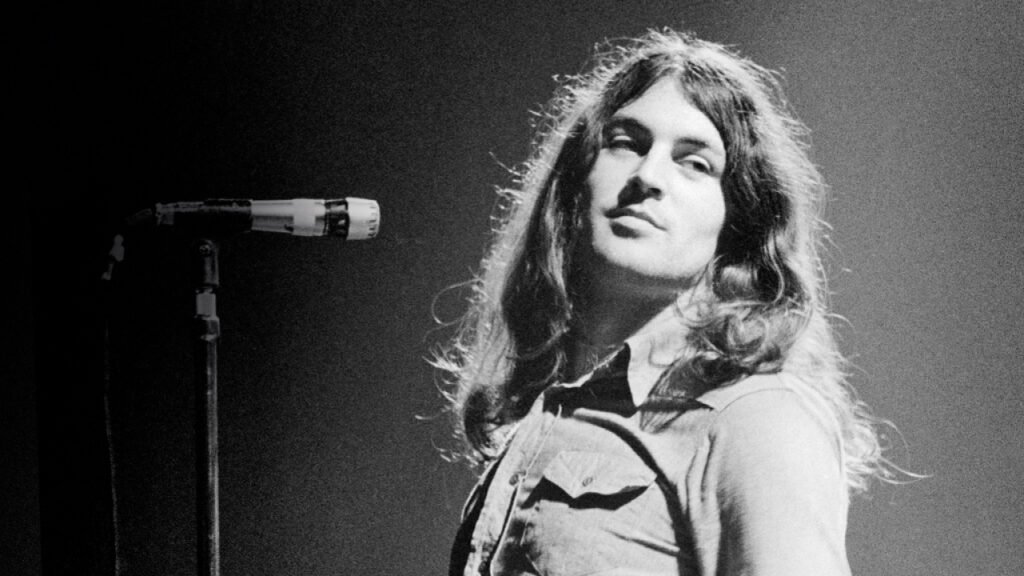
Legendary singer Ian Gillan replaced Deep Purple‘s original singer, Rod Evans, in 1969. Ritchie Blackmore, Jon Lord and Ian Paice decided that Evans‘ style was more suitable for the band’s early (more psychedelic rock) stage than what they had in mind for the future.
That’s how, after seeing Gillan sing in a pub, they decided to hire him. Although he has had periods where he has not been with the band, there is no denying he is the voice of Deep Purple. His best vocal performance of all time was arguably “Child in Time“.
Michael Kiske
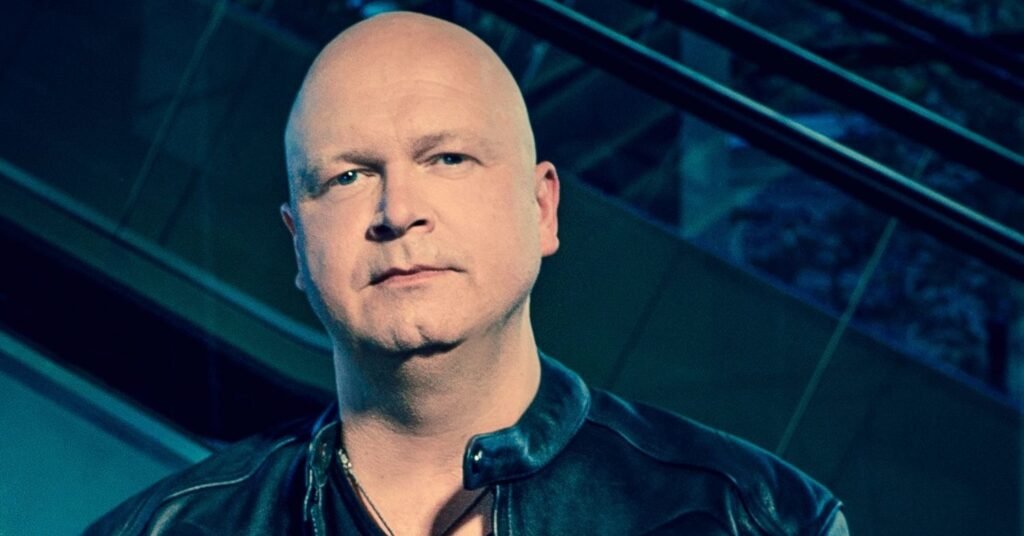
Originally, Kai Hansen was the singer and, at the same time, the lead guitarist of Helloween. However, he struggled to play and sing on stage, so they searched for a singer.
This is how they found Kiske who, at just 18 years old, became the singer of one of the best power metal bands. Kiske was the singer of an iconic era of the band, especially regarding the two “Keeper of the Seven Keys” albums. However, he eventually left the band in 1993 after major creative and personal differences with the band.
Kiske eventually rejoined the band in 2017 and is currently working well with the two other singers, Hansen and Andi Deris. Part of what made Kiske such a good singer was his amazing range and tone. He defined the standard of what a power metal singer should be and still sounds amazing even to this day.
Andi Deris
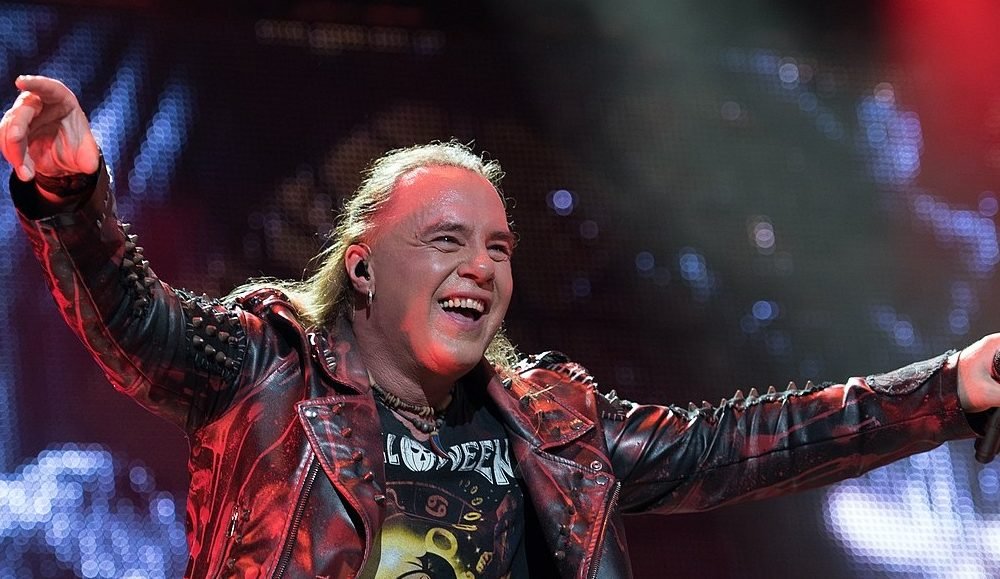
Funny enough, the next on the list of best rock and metal replacement singers is Andi Deris. Yes, the man who replaced, Michael Kiske in Helloween.
In 1993, when Kiske left Helloween, the German band replaced him with Deris who, unlike his predecessor, arrived with greater frontman experience. Almost immediately, Deris contributed to the lyrics writing of Helloween. Deris left his own stamp on the band and is still with them to this very day.
He perhaps has a harsher vocal style than most power metal singers but he added a unique approach to Helloween. Deris was also instrumental in giving the band stability after some inconsistent years with Kiske in the 90s.
Also read about the 18 best German heavy metal bands of all time
David Gilmour
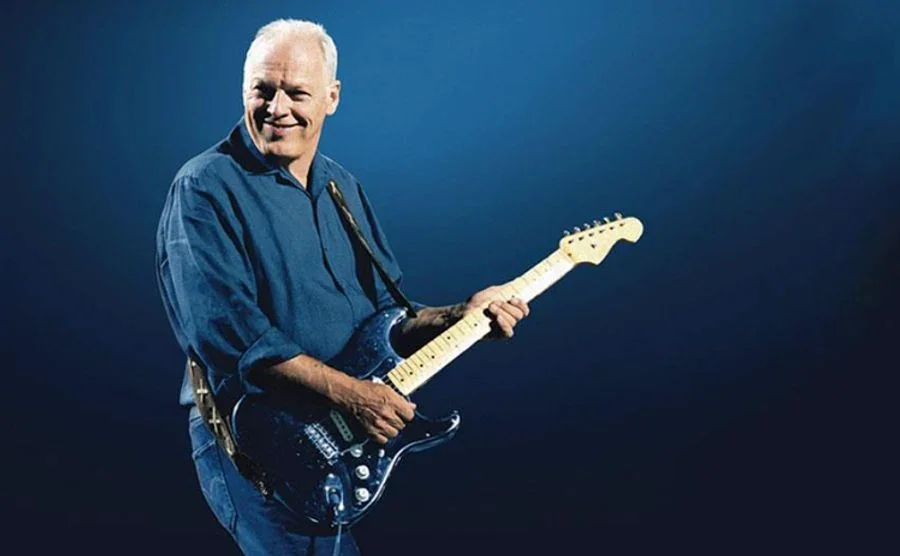
The original members of Pink Floyd were all schoolmates of David Gilmour, so he already had a connection with the band before joining them. It’s very important to consider his career and journey with the group.
Syd Barret, the band’s original singer, had begun to suffer from mental health problems and that led to the rest of the members offering Gilmour the position. He would become the leader of Pink Floyd after spending almost three decades in the band and having had differences with Roger Waters.
While Waters and Gilmour shared singing duties over the years, there is no denying that the latter was far more iconic. It is also impossible to imagine Pink Floyd‘s most iconic albums without his voice.
Brian Johnson
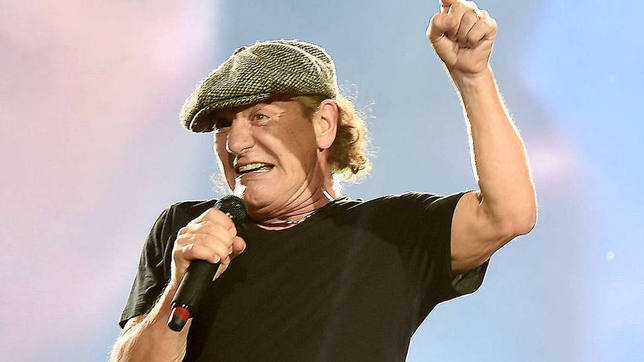
In 1980, Bon Scott, lead singer of AC/DC, was found dead under strange circumstances. After a considerable search for a new vocalist, the band members thought of Johnson, whom Scott revered as a great singer. Johnson had a small career with a band named Geordie back in the 70s.
AC/DC‘s multi-platinum success with Brian Johnson cements his place on our list of the best rock and metal replacement singers. Just being the voice of the “Back in Black” album is enough to be on this list. However, the band has had a lot of great moments with Johnson on the mic.
The fact he has been with AC/DC since Scott‘s passing says a lot about how important he is to them. Many fans prefer Johnson to Scott, similar to how many Van Halen fans prefer Hagar over Roth.
Sammy Hagar
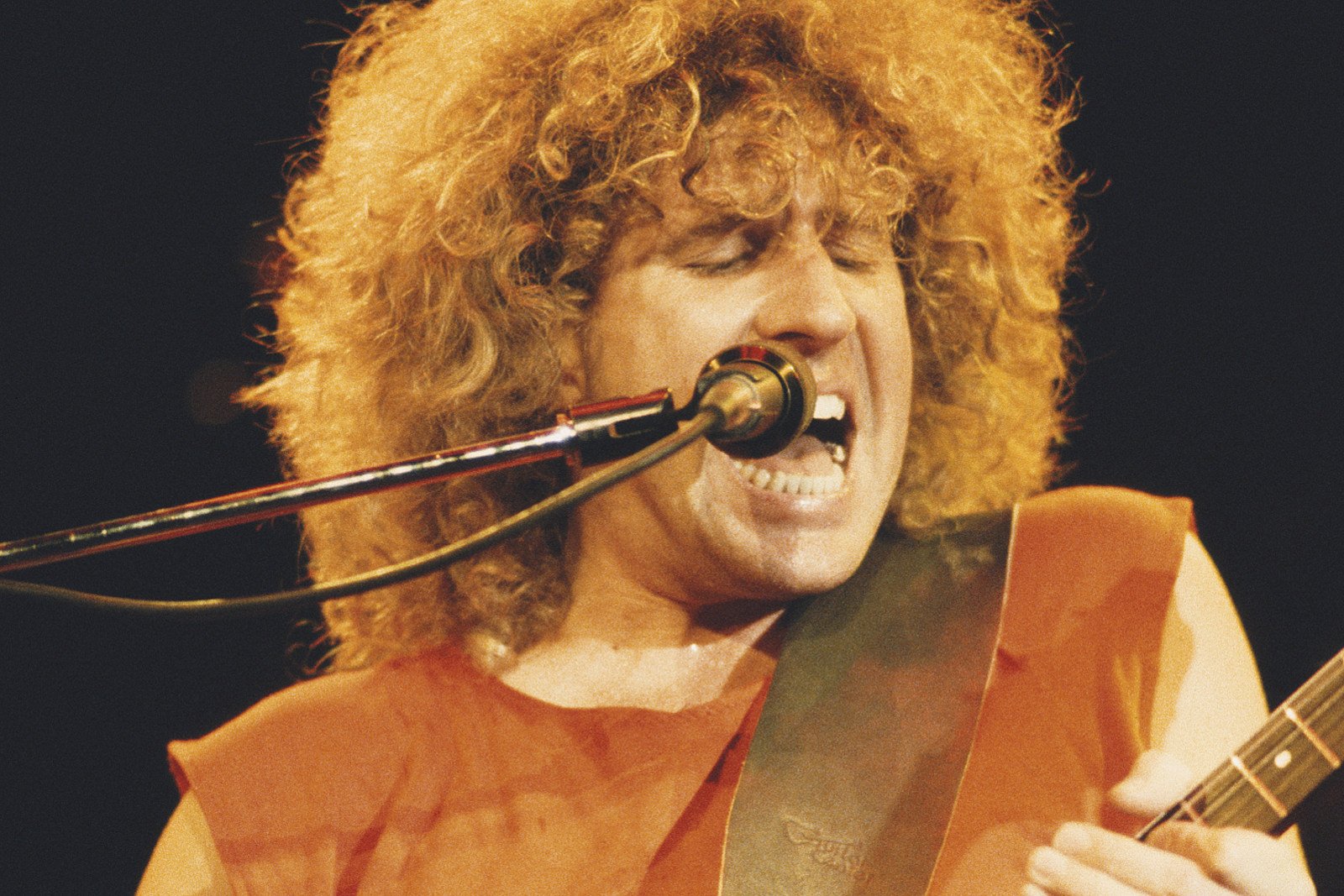
Sammy Hagar came to Van Halen with the difficult task of replacing David Lee Roth, who had left the band in 1985. Eddie Van Halen had a special appreciation for Hagar‘s former band, Montrose, and that played a huge part in their getting together. It’s also worth pointing out that Hagar was a successful solo artist in the mid-80s, with songs like ‘I Can’t Drive 55‘, which was even more impressive.
He would remain in Van Halen for a little more than a decade but it would be enough to leave his mark on the band’s history. In fact, it could be argued they were more successful with Hagar than Roth. Be that as it may, he is one of the best rock and metal replacement singers.
Tim “Ripper” Owens
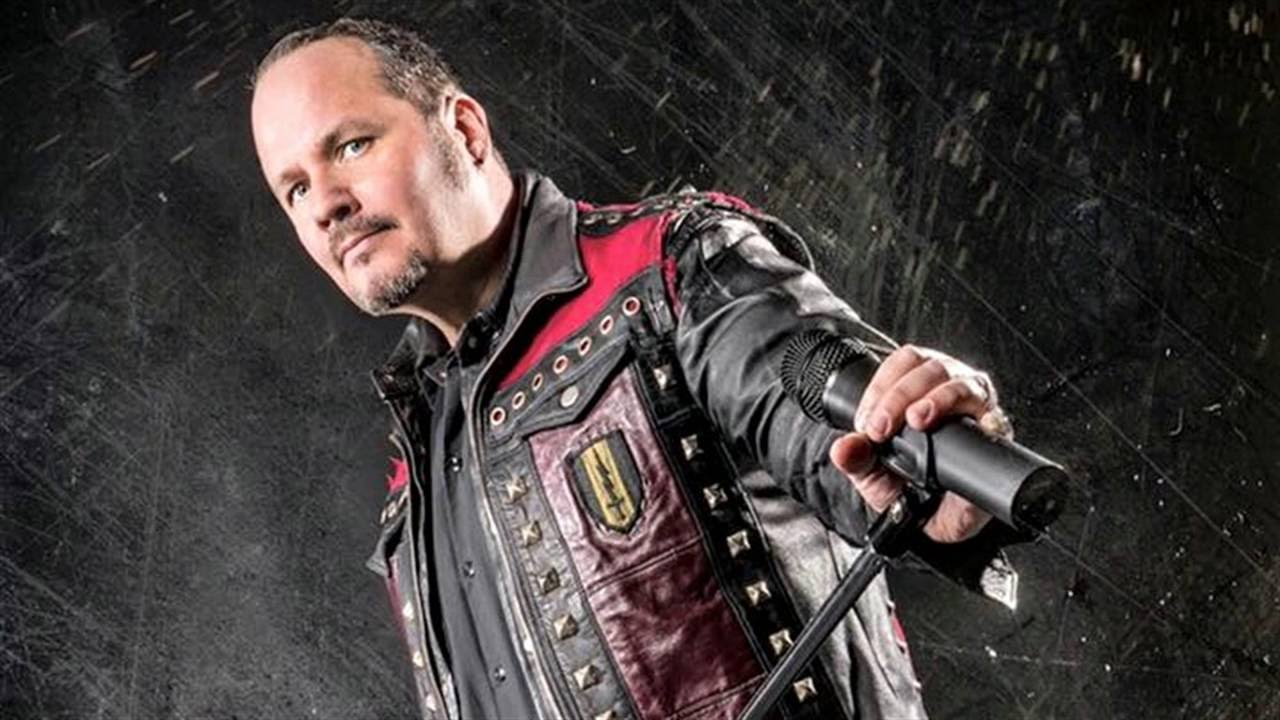
There is a strong argument to be made that Tim “Ripper” Owens is the ultimate rock and metal replacement singer.
Owens replaced none other than Rob Halford in Judas Priest in May 1996 and was there until 2003. As soon as he left Judas Priest, he replaced Matt Barlow in Iced Earth, staying with the North American band until 2007. And as if this wasn’t enough, he was also Yngwie Malmsteen‘s singer after taking over from Doggie White.
Obviously, Owens’ quality is more than clear since he was in top bands replacing iconic singers and lived up to expectations. His vocal range, consistency as a performer, and professionalism are all top-notch. He has always managed to adapt to all of his band’s demands. Definitely one of the best singers of the last thirty years or so.
Ronnie James Dio
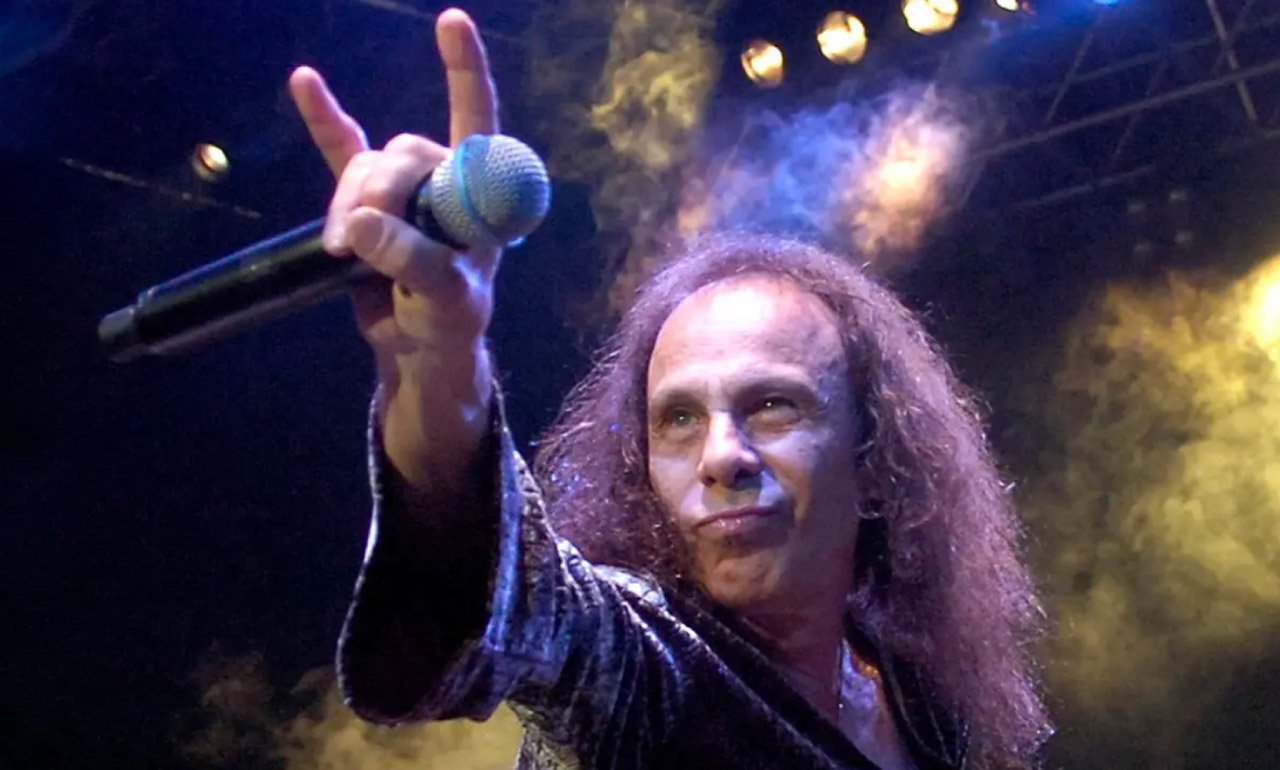
In 1979, after several differences between Tony Iommi and Ozzy Osbourne, the latter left Black Sabbath. Iommi had met Dio in Los Angeles and, taking advantage of the fact that he had left Rainbow, offered him the position of singer of Sabbath.
Black Sabbath had a lot of singers over the years but Ronnie James Dio is one of the most iconic. He revitalized the band at a very critical moment for them and helped them improve their sound. The 1980s “Heaven and Hell” album is widely regarded as one of the greatest metal albums of all time.
Dio also pushed Iommi as a guitarist, doing a lot of different things he didn’t do in previous albums. There are a lot of fans who think Dio was also the band’s greatest singer. Not just because of his singing but also because of the impact he had on them. They would be wrong, but he earned his place on our list, nonetheless.
Floor Jansen
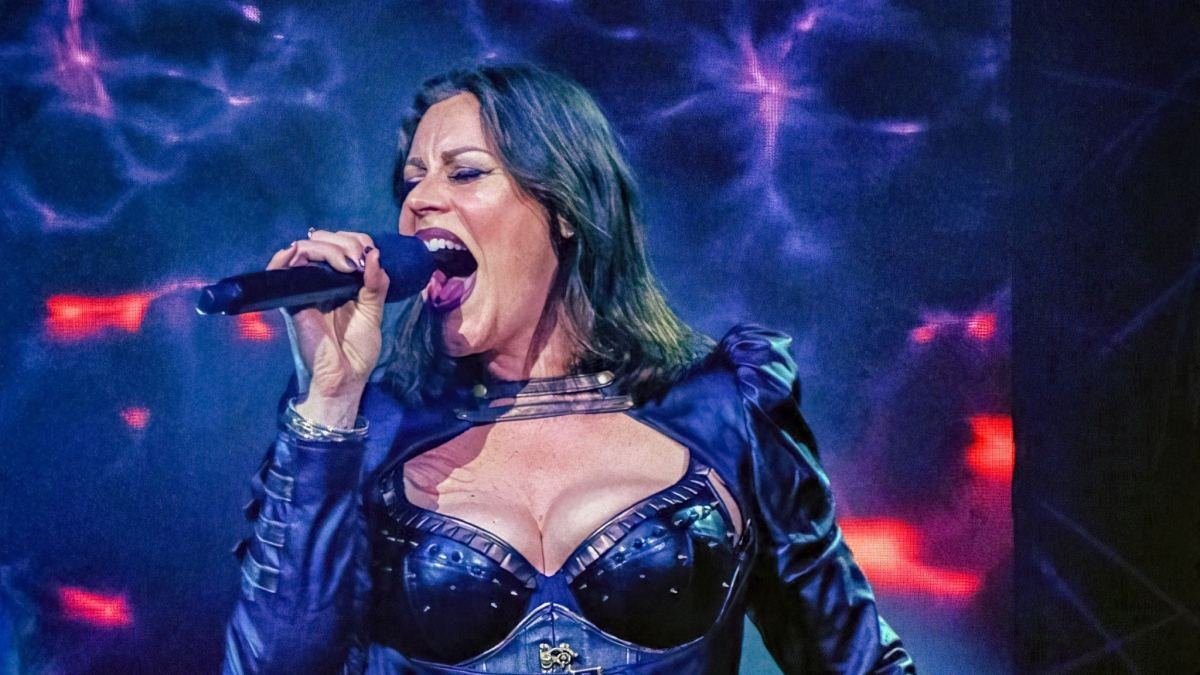
The Dutch singer joined Nightwish as Anette Olzon‘s replacement during the 2012 tour since the Swede was pregnant. However, this led to differences between Olzon and Tuomas Holopainen, leader of the band, resulting in Anette leaving Nightwish permanently. The band decided to hire Floor Jansen as its permanent singer.
Jansen has a versatile and operatic voice that made it easy for her to join the Finnish band. That has led to an unnecessary debate on social media comparing Jansen with Tarja Turunen, the band’s first and iconic singer. Betting on Jansen turned out very well for Holopainen and that is why she is among the best rock and metal replacement singers.
Also read about the 22 best female heavy metal singers of all time
John Corabi
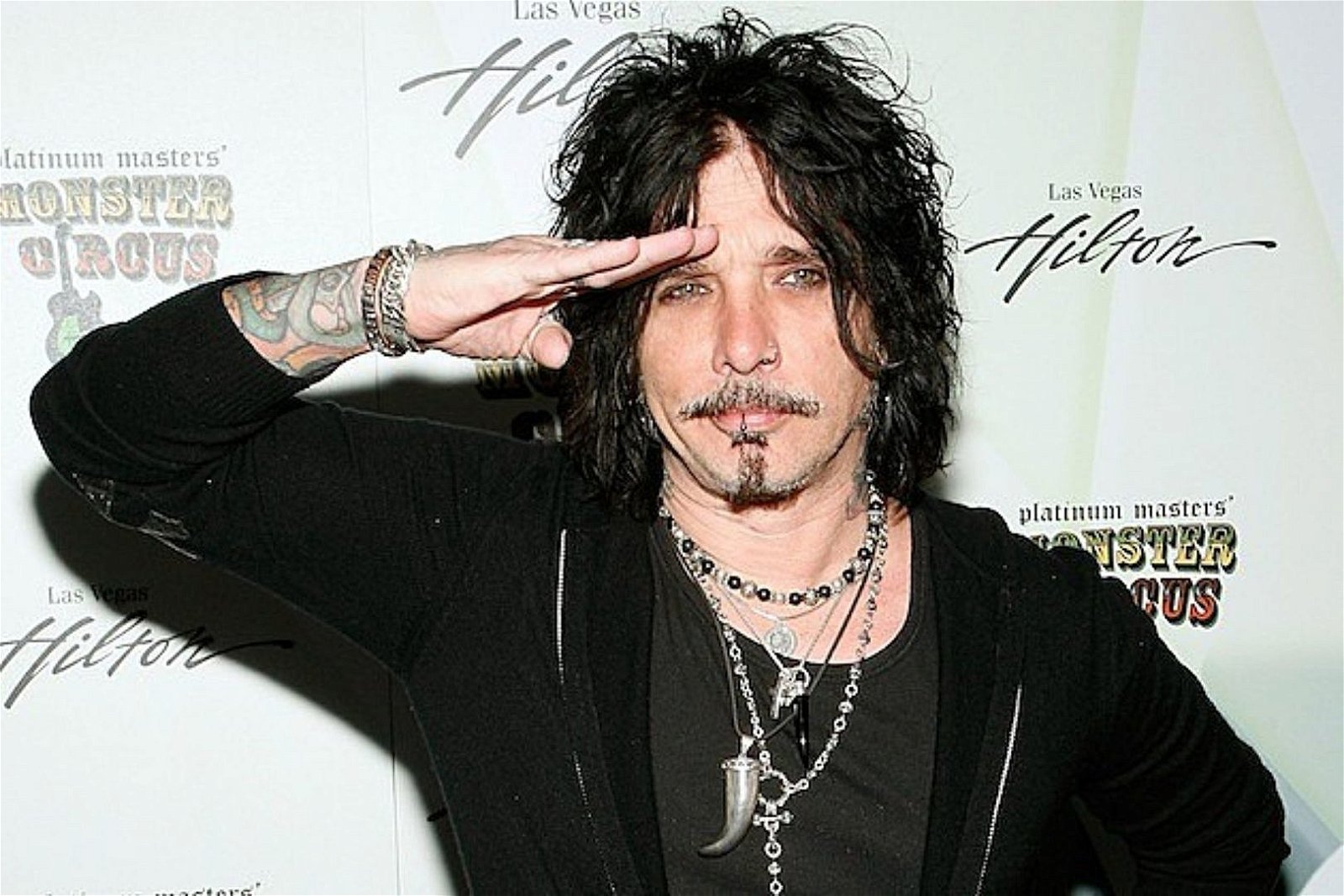
Problems with alcohol (which affected his voice) and the fact that he was prioritizing other things over music, led the rest of the members of Motley Crue to fire Vince Neill in 1992.
This is how John Corabi arrived, a relatively young singer without much experience at that level of bands but with a talent that allowed him to sing all of Motley Crue‘s material. Corabi only made one record with the band, the 1994 self-titled one, but is regarded as one of their best. In fact, some call it the best album they ever made and he wrote a huge chunk of the record.
His time in the band was short (four years) until Neill returned in the mid-90s, although he left his mark among Motley Crue fans.
William DuVall
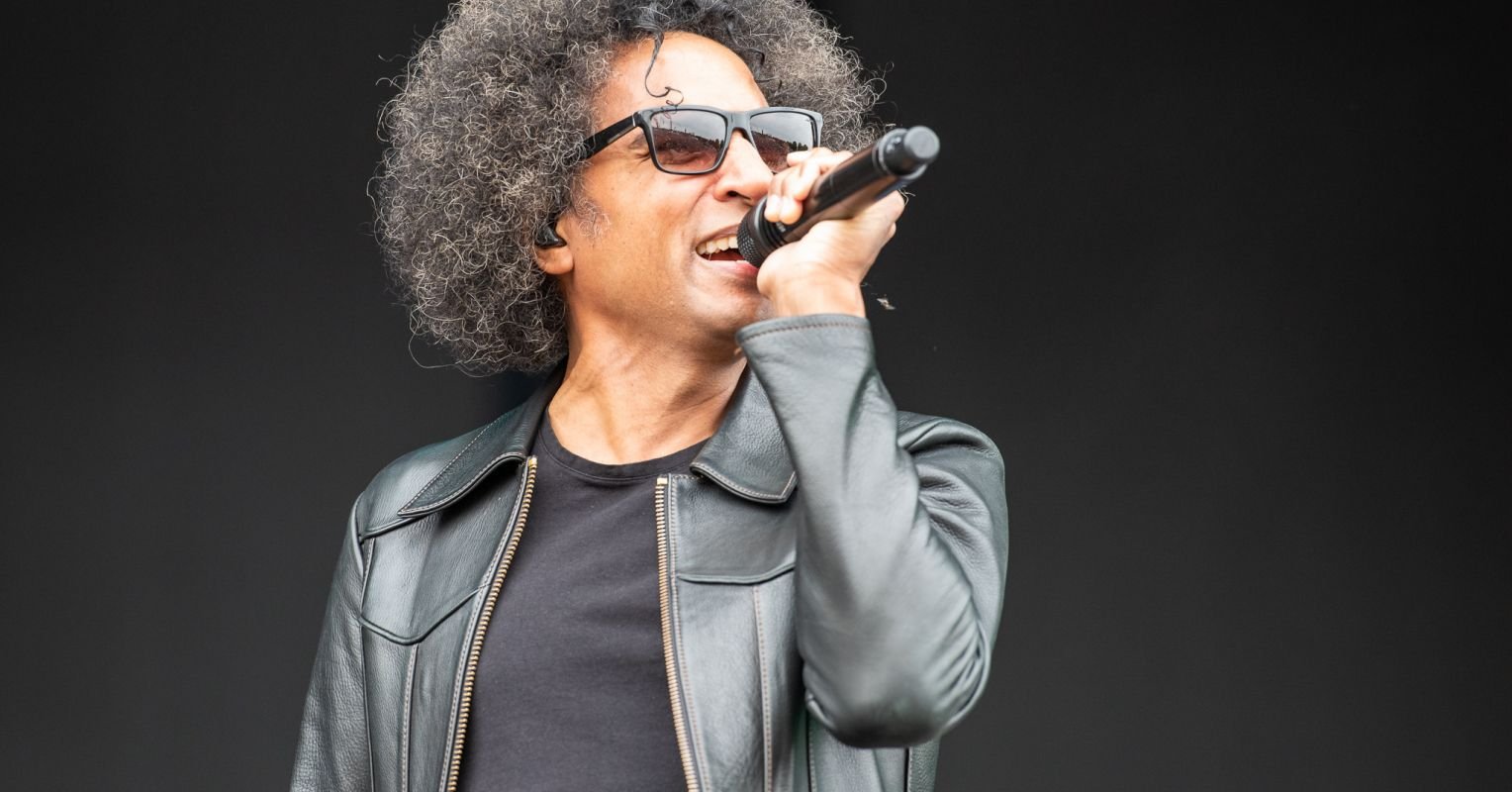
After Layne Staley died in 2002, Alice in Chains went on hiatus, with each member working on other projects. In 2006, the band, already in the process of reuniting, performed at a tribute concert to Heart with different singers from various bands.
One of them was William DuVall, who sang “Rooster” that night. Since the rehearsals they had seen DuVall to be the vocalist of the band and that was it. He continues to be Alice in Chains‘s singer until this very day.
The great thing about DuVall is that he has the range to sing the classic Alice in Chains songs but he also has his own style. That is a great balance that has made fans accept him as Staley‘s replacement.